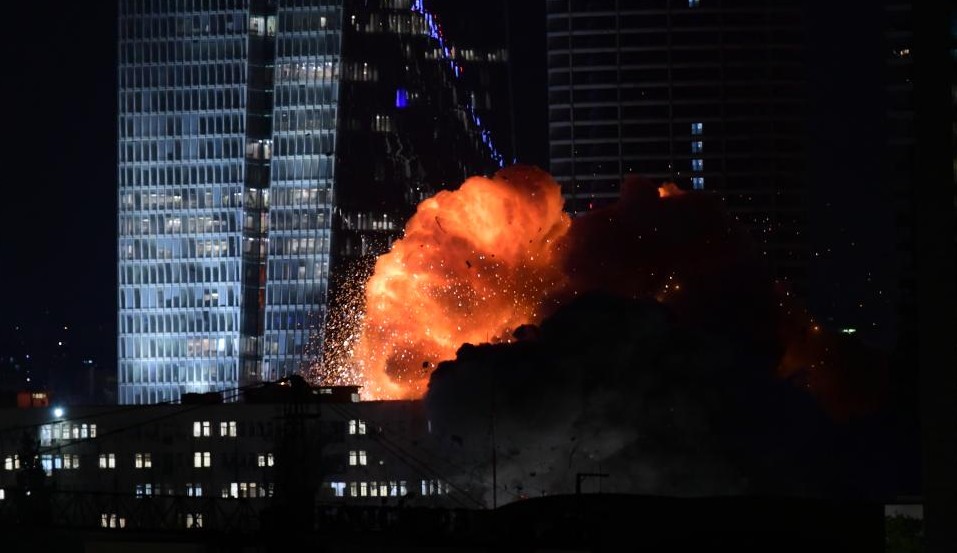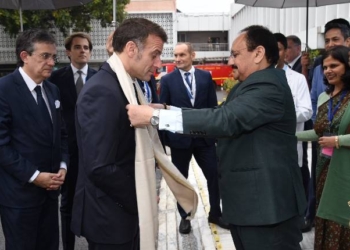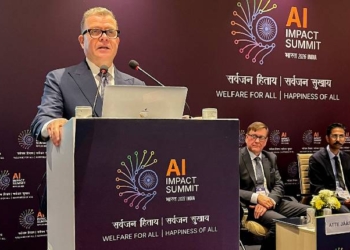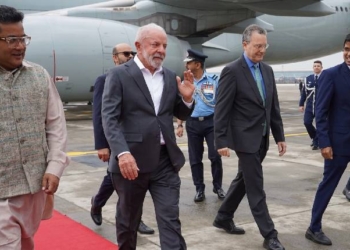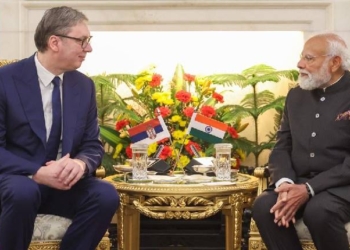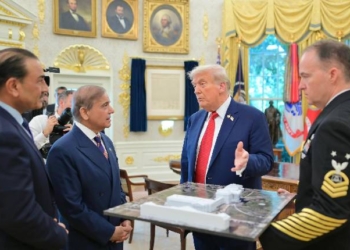New Delhi: There’s a question that haunts not just citizens of conflict-ridden regions but every concerned global citizen: Why are the neighbours always so terrible?
Across the world, relationships between many bordering nations are marked more by mistrust and enmity than cooperation and peace. From Russia’s ongoing war with Ukraine to the complex, ever-flammable Middle East crisis involving Israel, Palestine, Iran, Yemen, etc., and back to the subcontinent where India and Pakistan remain locked in a hot and cold conflict — tension is always simmering.
Why is it so hard for countries to be civilised neighbours?
The answer, of course, isn’t simple. Global diplomacy is layered and politically charged. History, identity, borders drawn in haste, and the scars of colonialism have left deep wounds. The role of religion and ideology often worsens these divides. But somewhere in this maze, a disturbing truth exists: some nations choose confrontation not just as a reaction but as a core part of their identity.
Take, for instance, Pakistan. Since its inception on August 14, 1947, it has fashioned its national identity in opposition to India. From the very moment it emerged as a separate country — born of the violent partition of the subcontinent — it has behaved not like a neighbour wanting peaceful coexistence but like a rival consumed by bitterness. Its obsession with the two-nation theory and religious identity has driven its politics into a perpetual state of hostility.
The pattern of aggression was set early. From sending tribal raiders to annexe Kashmir immediately after Independence to initiating multiple wars in 1947, 1965, 1971, and 1999 and finally, cross-border terrorism in the 1990s — Pakistan has ticked every box on the “how to be a bad neighbour” checklist. And while its political leaders often pronounce the rhetorical words of peace, the control lies firmly with its military establishment, which believes that hostility with India is a means of staying in power.
When the Pakistani Army Chief made a communal statement targeting Hindus and Muslims — and the April 22 Pahalgam terror attack quickly followed it — it became clear how deep this rot goes. The attack wasn’t just another episode of terrorism; it was a loud signal that the facade of deniability was being dropped. Pakistan, which had long pretended not to shelter terrorist elements, is now owning them openly.
The pictures and video clips of its army’s top ranks attending the funerals of the terrorists killed in Operation Sindoor and being given state honours exposed Pakistan’s duality. It has made known to the world that terrorists are its other wings. The political class and the army-led establishment only want to build nurseries for terrorists, and they are least bothered about fighting poverty.
According to World Bank data, nearly 45 per cent of Pakistan’s population lives in poverty, with 16.5 per cent classified as living in extreme poverty.
The economy is on life support, seeking bailouts from the IMF every few years. But despite all this, the country continues to funnel money and manpower into terror factories rather than schools and hospitals.
For over three decades, Pakistan has cultivated a shadow war strategy against India — arming, funding, and sheltering terrorist networks while maintaining deniability on international platforms.
The 26/11 Mumbai attacks, perhaps the darkest chapter in modern Indian history, still haven’t seen justice delivered because of Pakistan’s consistent stonewalling and dishonesty.
But the rules are changing now. The April 22 attack in Pahalgam seems to have been the final straw. India has made it clear that this isn’t going to be tolerated anymore. Operation Sindoor, the military and strategic response to this latest provocation, signals a turning point. No longer will India allow proxy-war tactics to go unanswered. The gloves are off.
In a broader context, this isn’t just about India and Pakistan. It’s about how nations perceive power, identity, and survival in a polarised world.
Russia sees Ukraine’s alignment with the West as a threat; Israel, locked in an existential struggle, responds with overwhelming force while its adversaries dig deeper into the cycle of extremism.
In each of these relationships, grievance and retaliation feed off each other, leaving little room for dialogue.
For Pakistan, the opportunity to reset relations with India has come and gone several times. But so long as its army runs its foreign policy and its politics remain trapped in identity warfare, things are unlikely to change.
And currently, no one knows what will happen further in Ukraine-Russia, Israel-Hamas, and now it is Israel-Iran or maybe more hot spots will join in tomorrow.
India did well by halting its Operation Sindoor and keeping Pakistan in a perpetual state of nervousness. The neighbour is silent for now, but its covert efforts to foment trouble in Jammu and Kashmir continue. The army has been thwarting infiltration efforts along the Line of Control in Jammu and Kashmir.
Despite being on notice, the sad reality persists: some neighbours seem determined to remain terrible.
(IANS)




